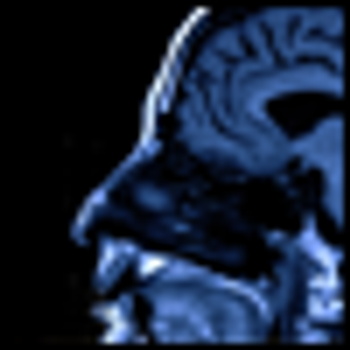
Psychosis Risk (AKA attenuated psychotic symptoms disorder) has always had 3 strikes against it.


Psychosis Risk (AKA attenuated psychotic symptoms disorder) has always had 3 strikes against it.

Regretfully, if we are to judge the progress of DSM-5 by the incoherence of a recent commentary by the Chair and Vice-chair of the DSM-5 Task Force, we have a lot to worry about.

Hoarding has broad-reaching implications, including a substantial public health burden linked to occupational impairment, poor physical health, and demand for social services.

Dear Mrs. -- You have asked me about the cause of your mood disorder, and whether it is due to a "chemical imbalance."

We are living in an evidence-based era in all fields of medicine, including psychiatry. For the most part, this represents progress because clinicians can start to base their interventions on treatments that have been supported by the results of research studies.

Newly developed blood tests for schizophrenia and for depression designed to augment current diagnostic approaches have attracted increased attention at recent major scientific meetings.

The British Psychological Society is a highly esteemed organization representing 50,000 members. Recently, it released an open letter to the American Psychiatric Association offering a harshly critical view of DSM-5.

This article addresses the epidemiology, diagnosis, and treatment of mild TBI among combat veterans, with a particular focus on blast injury and the presence of comorbid posttraumatic stress disorder (PTSD).

DSM-II was published in 1968. DSM-5 will be published in 2013. How much progress have we made? I propose that we approach this question with a quiz.

The legend of the “chemical imbalance” should be consigned to the dust-bin of ill-informed and malicious caricatures.

During the past year, I have been involved as an expert witness for the defense in 14 SVP cases (tried in California, Washington, and Iowa). My role has been to clarify what is meant by the wording of the Paraphilia section in DSM-IV. And it certainly does badly need explaining.

Treatment resistance in bipolar disorder is clinically familiar but lacks a standard definition. Numerous evidence-based treatments exist for all phases of bipolar disorder, and these should be optimized and fully explored.

A balanced review of the safety and efficacy of ECT is needed, which does not mean weighing anecdotal reports of memory loss equally with systematically collected clinical data.

Dr McGorry’s promotion of primary prevention has been well-intended but is clearly premature and carries with it considerable risks of harmful unintended consequences.

Talking to Families About Mental Illness aims to help primary care providers who want to offer family psychoeducation. This book targets non-psychiatrists who diagnose and treat mental illnesses.

Although the foundational and antifoundational traditions differ in their language and claims, both call into question the legitimacy of psychiatric diagnosis and treatment.

Dr Feinberg takes exception to much of what we wrote, or what he thinks we wrote, in our article “Early Antecedents and Detection in Schizophrenia”. We will do our best to reply to his criticisms of what we did write and try to point out where he is shadowboxing at issues that he has created but that we do not hold or endorse.

I wish to comment on the article by Drs McGlashan and Woods, “Early Antecedents and Detection of Schizophrenia” in the March 2011 issue of Psychiatric Times.

The various treatment guidelines are a useful authoritative resource for the reader who wants to know more about this topic.

If psychiatry reduces or abandons its engagement with psychology and social science in understanding and treating mental disorders and focuses predominantly on the biological factors of mental disorders, what will our role as psychiatrists be?

There should be no quarrel over the reality of severe CFS as an instantiation of genuine disease, just as schizophrenia and major depression constitute real disease.

In the sixth edition of his famous 2-volume textbook Psychiatrie, which appeared in 1899, Emil Kraepelin introduced the by now well-known distinction between dementia praecox (soon to be called schizophrenia) and manic-depressive illness.

In this short film directed by Caskey, Ben has to make a difficult choice: continue to live with hallucinations, or confront reality, by taking medications that will destroy his imaginary world.

How accurate is this picture, and what explains the changing patterns of psychiatric practice? Gardiner Harris and The New York Times were near these important stories and missed them.

A large and comprehensive study recently performed in Korea has produced a surprising and disturbing result. The rate of autism is reported to be an astounding 1 in 38...